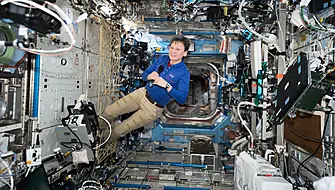Yet there are plenty of reasons to break up with your coffee machine. Research has found that some people may not tolerate higher amounts of caffeine and can suffer jitteriness, anxiety and insomnia.
And now, a new study, published in the journal BMJ Evidence Based Medicine, which examined data from 37 observational studies, has suggested that pregnant women – or those trying for a baby – should consider avoiding caffeine altogether.
Here, we asked experts to give some tips and strategies for kicking your coffee habit for good.
1. Establish a new ritual
“And make it easy,” says by Eliza Flynn, pre and postnatal fitness expert for Biamother (biamother.com). “If you drink coffee because it’s ‘what you do’, then why not switch to something else?
“Hot ginger and lemon is fantastic for clearing away the cobwebs, for example, and many swear by it for easing morning sickness.”
Flynn suggests adding a dash of maple syrup if you like it a little sweeter too.
“If it feels like too much of a challenge to chop up your lemon and ginger first thing, then pre-chop lemon slices and freeze them. You can do the same with ginger if you peel it first.”
2. Get your morning kick-started another way
Instead of relying on coffee for your energy boost, you can achieve the same buzz by working out instead.
“Dynamic stretches and movements, such as arm circles and marching on the spot will help increase blood flow and make you feel more awake,” says Flynn. “A few minutes of this, during the morning hours, will give you the natural energy boost you crave.”
3. Make it harder to get your coffeeIf you stumble into the kitchen half asleep, it’s an automatic response to grab the coffee and switch on the kettle. If you’re serious about cutting out caffeine though, Flynn says that you should rip off the band-aid and remove it completely from your house.“If that feels like too much too soon, place it somewhere which is awkward to get to and set out your new beverage ingredients where they’re in easy reach,” she suggests.4. Opt for decaf
Decaffeinated coffees and teas might be the right choice for you, especially if you can’t go without the flavour of caffeine, says Clarissa Lenherr, nutritionist for personalised healthcare service, bioniq (bioniq.com)
The key here is to be mindful, as some decaf alternatives still contain residual amounts of caffeine in them.
“Plus some decaf coffees use chemicals to strip the coffee beans of caffeine,” says Lenherr. If opting for decaf, she suggests choosing naturally decaffeinated versions that use carbon dioxide to remove the caffeine.
5. Be mindful of hidden caffeine
Caffeine isn’t just in your cup of coffee or tea – it can also be found in some fizzy drinks, energy drinks, dark chocolate, protein bars and some paracetamol blends.
“Replace fizzy drinks with sparkling water flavoured with herbs, minimise dark chocolate consumption and read the labels of protein bars and powders before taking them,” says Lenherr.
6. Reward yourself
If you’re pregnant and craving coffee, it might be helpful to focus on the motivation for change.
“Remind yourself why you’re giving this up and reward yourself for your abstinence,” says Flynn.
“It’s not about replacing one bad habit for another, however. Consider giving yourself an extra five minutes in bed, or putting that money aside to treat yourself at the end of each month.”
7. Gather your support group
Tell others what you’re doing and ask them to help you. “This might mean meeting friends elsewhere, rather than in coffee shops where the scent of freshly ground beans might tempt you,” says Flynn. “Or see if they’ll avoid coffee when you’re out together.”
And finally, don’t be too hard on yourself. “Cutting out caffeine can be quite a feat so you might need to attempt it several times,” says Flynn.
“We’ve only got a certain amount of willpower so if you want to succeed, focus on changing one habit at a time. It’s also never too late to start.”







